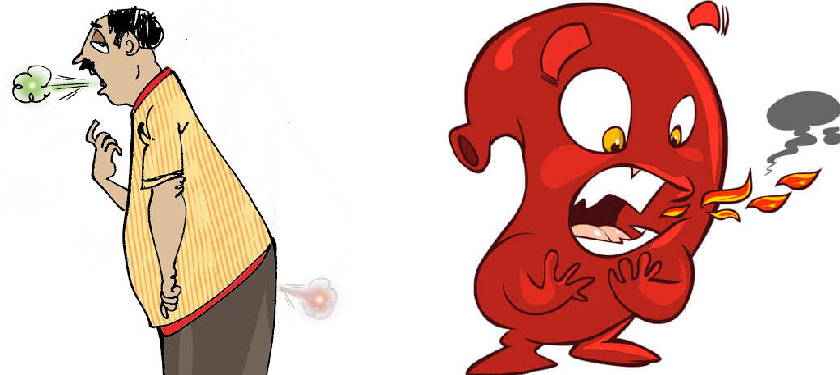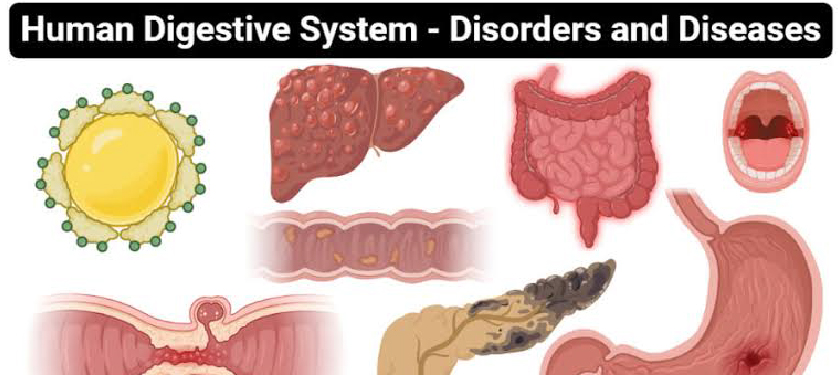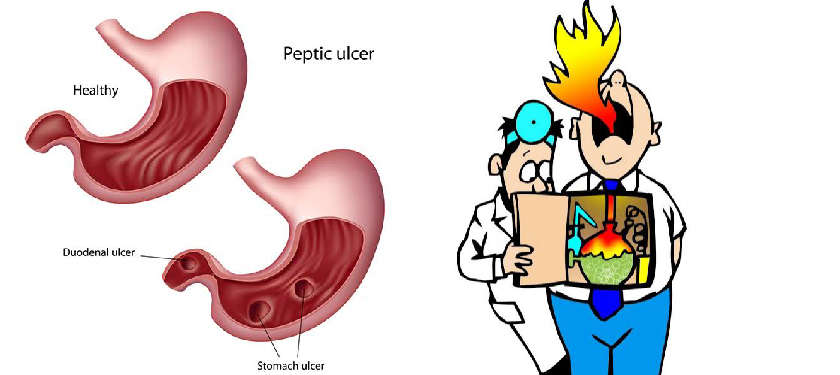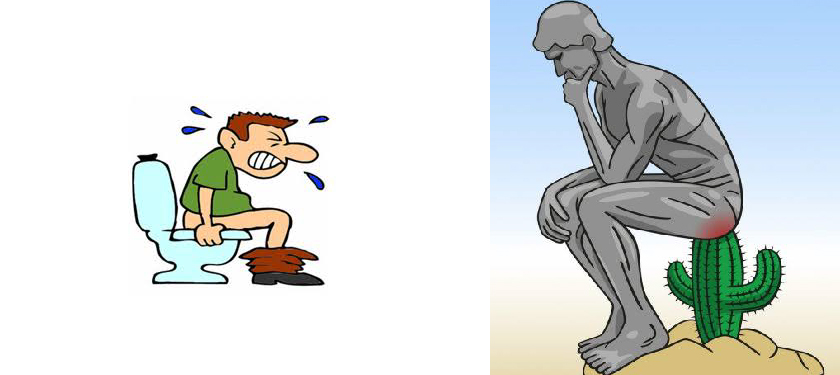Acidity
Caused by High acid secretion in Stomach, stress (mental and physical), after spicy food, during fasting conditions. In most of the cases, it is due to irregular time of taking food. The symptoms are Burning pain in upper abdomen, sometimes in chest; nausea, discomfort in abdomen, dry cough and eructations.
Indigestion and Flatulence (Gas)
Generally these symptoms are due to too much oily food, over eating, indolence or lack of exercise and aerated drinks.
Peptic Ulcer
Peptic ulcer or acid peptic disease are of two types. 1. Gastric ulcer which affects stomach and 2. Duodenal ulcer- which affects duodenum. It occurs due to infection of Helicobacter Pylori. The other causes are stress and smoking. Symptoms are abdominal pain which is aggravated after taking food in cases of gastric ulcer and ameliorated after taking food in case of duodenal ulcer. Other symptoms are weight loss, belching, heart burn, nausea and vomiting.
Gastroesophageal Reflux Disease
It develops when the oesophageal mucosa is exposed to gastric contents for prolonged periods of time. The major symptoms are heartburn and regurgitation, often provoked by bending, straining or lying down. Waterbrash that is salivation due to reflex salivary gland stimulation as acid enters gullet, is often present. There may be chest pain, dysphagia, irritation to larynx.
Constipation
when a person has difficult bowel movements or passes less than three bowel movements per week, it is known as Constipation. Hard stool, straining at the stool are common presentation with abdominal discomfort.
Piles (Haemorrhoids)
Inflamed tissue in the anal canal. They contain blood vessels, support tissues, muscle and elastic fibers. Commonly caused by straining while bowel movements, chronic constipation and pregnancy. Sometimes, they may bleed and cause severe pain. Many a times, bleeding piles can cause anaemia and weakness.
Irritable Bowel Syndrome
It is a functional bowel disorder in which abdominal pain is associated with defaecation or change in bowel habit with features of disordered defaecation and distention. Symptoms are altered bowel habit, colicky abdominal pain, abdominal distention and feeling of incomplete defaecation. Most patients alternate between episodes of diarrhoea and constipation.
Inflammatory Bowel Disease
Ulcerative colitis and Crohn’s disease are chronic inflammatory bowel diseases.
1.Ulcerative Colitis- It involves the colon. There may be inflammation of Rectum (Proctitis) which causes rectal bleeding and mucus discharge with tenesmus. Inflammation of Sigmoid colon (Proctosigmoiditis) causes bloody diarrhoea with mucus, fever, lethargy and abdominal discomfort. Inflammation of whole colon (Pancolitis) causes bloody diarrhoea, passage of mucus, anorexia, malaise, weight loss and abdominal pain.
2.Crohn’s Disease- It can involve any part of Gastrointestinal tract from mouth to anus. Symptoms depend upon major site of disease involvement. Symptoms of ileal disease are abdominal pain, diarrhoea, weight loss.
Inflammatory Bowel Diseases can cause severe life threatening inflammation of colon, perforation of small intestine or colon, life threatening acute haemorrhage, fistula and perianal disease.





